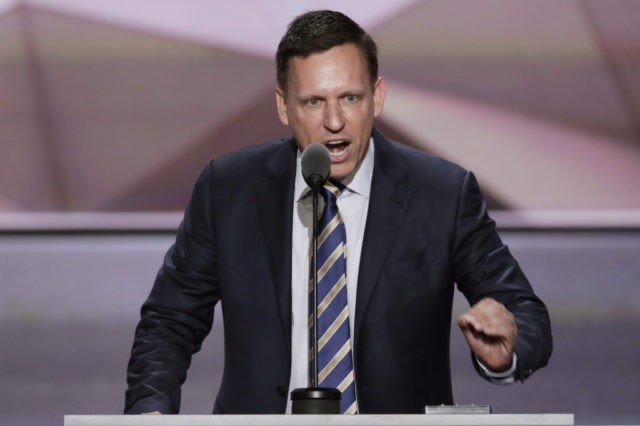Peter Thiel, the Silicon Valley billionaire who funded Hulk Hogan’s lawsuit against revenge porn publishers Gawker, wrote an op-ed for the New York Times today about how journalists have nothing to fear from him — unless, like Gawker, they commit gratuitous violations of privacy.
As the competition for attention was rewarding ever more exploitation, Gawker was leading the way. The site routinely published thinly sourced, nasty articles that attacked and mocked people. Most of the victims didn’t fight back; Gawker could unleash both negative stories and wellfunded lawyers. Since cruelty and recklessness were intrinsic parts of Gawker’s business model, it seemed only a matter of time before they would try to pretend that journalism justified the very worst.
But Thiel pointed out that other publications, not just Gawker, sometimes fall on the wrong side of privacy rights.
Unfortunately, lurid interest in gay life isn’t a thing of the past. Last week, The Daily Beast published an article that effectively outed gay Olympic athletes, treating their sexuality as a curiosity for the sake of internet clicks. The article endangered the lives of gay men from less tolerant countries, and a public outcry led to its swift retraction. While the article never should have been published, the editors’ prompt response shows how journalistic norms can improve, if the public demands it.
Thiel further discussed his own experience of being outed on the internet back in 2007 when Gawker published an article discussing his sexuality. He discussed how Gawker took away his ability to decide whether or not he would make his sexuality public.
Thiel had been coming out as gay to close friends and wanted to gradually tell others — but, thanks to Gawker, the entire world quickly became aware. The Silicon Valley entrepreneur went on to recount the Hulk Hogan case.
Sure enough, in October 2012 Gawker did something beyond the pale: They published a sex tape without the consent of the people in the video. Unfortunately for Gawker, they had targeted someone who was determined to fight back. Terry Bollea is better known as the wrestler Hulk Hogan, a fact that Gawker claimed justified public access to his private life. Mr. Bollea disagreed. At first he simply requested that Gawker take down the video. But Gawker refused. It was getting millions of page views, and that was making money.
Discussing the proposed Intimate Privacy Protection Act, Thiel explained his support of the bill that would make the distribution of sex tapes and explicit private photographs illegal,
The United States House of Representatives is considering the Intimate Privacy Protection Act, a bipartisan bill that would make it illegal to distribute explicit private images, sometimes called revenge porn, without the consent of the people involved. Nicknamed the Gawker Bill, it would also provide criminal consequences for third parties who sought to profit from such material.
Thiel finished his article stating that the bill is the first step in the right direction and that the process of passing this bill can begin by acknowledging that the exposing of people most intimate moments for no good reason is wrong.
That is the kind of clear moral line that Gawker and publishers like it have sought to blur. But they can’t do it if we don’t let them.
Lucas Nolan is a conservative who regularly contributes articles on censorship and free speech to Breitbart. Follow him on Twitter@LucasNolan_ or email him at lucas@yiannopoulos.net

COMMENTS
Please let us know if you're having issues with commenting.